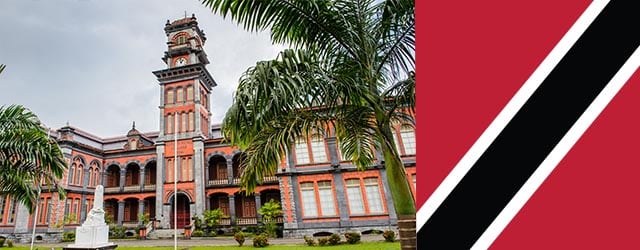The republic of Trinidad and Tobago girds for austerity as oil brings in less foreign exchange.

Trinidad and Tobago, the two-island republic seven miles off the Venezuelan coast, is the wealthiest country in the Caribbean. Indeed, it’s the third-richest country in the Americas after the US and Canada, with per capita GDP of $21,324 in 2014. Though not a member of OPEC, Trinidad and Tobago owes its high-income status to the discovery of oil in 1910. Unlike many of its neighbors in the Caribbean, it has an industrial economy, based mainly on petroleum, petrochemicals and natural gas.
However, the economic slowdown that followed the global financial crisis worsened when oil and gas prices plunged over the past couple of years. Jwala Rambarran, then governor of the central bank, announced in early December that the country had officially entered a recession. He also named local buyers of foreign exchange, a disclosure for which the government fired him shortly before Christmas. Still, no one disputes that Trinidad and Tobago has hit a rough patch. In a year-end address, prime minister Keith Rowley said the government would cut spending by 7% for fiscal 2016, reimpose land and building taxes—which have not been collected since 2009—and focus domestic investment on housing, road construction, agriculture, tourism and forestry.
Mariano Browne, a management consultant in the capital city of Port of Spain who served as a Trinidad and Tobago cabinet minister and has held executive banking positions in Barbados, admits Trinidad and Tobago faces a period of austerity. “Revenue depends substantially on energy prices, [and] energy prices have been hit by international changes,” he says.
Cheap oil increases the importance of FDI and diversification, says Conrad Enill, another consultant and former cabinet minister. “There is a real push now to get FDI into non-energy investments,” he says. He adds that Trinidad and Tobago has advantages, including large numbers of engineers, accountants and lawyers; subsidized electricity and transportation; a government tradition of honoring contracts, even when negotiated by previous administrations; and a “fairly stable” union environment—although government workers have lately been protesting pay delays.
Proximity to South America is another benefit, according to Browne. “We have a sort of umbilical cord with Venezuela,” he says. The two countries share a long political and trading history and signed cooperation agreements in 2009 and 2014.
On the downside, Trinidad and Tobago suffers from an entrenched crime problem. The US State Department says various governments have unveiled anti-crime strategies but done little to implement them. During his election campaign last September, Rowley, then opposition leader, and the incumbent prime minister both promised to tackle violent crime.
Non-energy FDI opportunities currently include tourism infrastructure, solar energy and residential construction. Whether such projects will provide enough growth to replace the drop in energy revenues during the coming years remains to be seen.
Vital Statistics |
|---|
|
Location: Just north of Venezuela |
|
Neighbors: Barbados, Grenada, Grenadines, Guyana, St. Vincent, Venezuela |
|
Capital city: Port of Spain |
|
Population (2015): 1.2 million |
|
Official language: English |
|
GDP per capita (2014): $21,324 |
|
GDP growth (2014): 0.8% |
|
Inflation (2014): 5.7% |
|
Currency: Trinidadian dollar |
|
Investment promotion agency: InvesTT |
|
Investment incentives available? Some tax and duty holidays; new incentive expected in April for operations producing foreign exchange |
|
Ease of Doing Business rank (2015): 79 |
|
Corruption Perceptions Index rank (2014): 85 |
|
Political risk: Little cooperation with other Caribbean nations; central bank direction uncertain. |
|
Security risk: Crime can add to costs, depending on location. |
PROS |
|---|
|
Sovereign wealth fund provides buffer against budget shortfalls |
|
Increasing number of public-private partnerships |
|
Long-standing tradition of FDI |
|
Simple registration system for business start-ups |
|
Currency’s managed float expected to continue |
CONS |
|---|
|
Limited foreign exchange |
|
High land costs and accessibility problems outside large urban areas |
|
Job losses in energy sector |
|
Unclear net effect of government cutbacks |
Sources: Bank of Nova Scotia, Barbados Today, Caribbean News Now, Daily Express and Sunday Express, Global Voices, Jamaica Gleaner, Jamaica Observer, State Department, Transparency International, Trinidad and Tobago Newsday, Trinidad Guardian, World Bank
Click for more information on Trinidad and Tobago.



